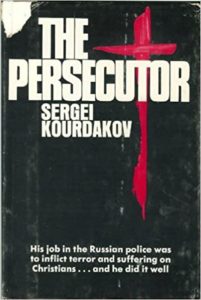Helen Keller was an extraordinary person who learned to read, talk, and communicate even though she was both deaf and blind. When she was only nineteen months old she contracted a disease that she thankfully lived through, however, the disease she had left her deaf and blind for the rest of here life. For about six years she was in a ‘prison’ of deafness and blindness, until Anne Sullivan arrived at their house. Her job was to teach Helen how to communicate to other people using hand signals. Here are some of the key incidents that lead Helen out of her ‘prison’ of deafness and blindness.
Communicating is the first thing that lead her out of her ‘prison’. with Anne’s help Helen learned to communicate by using hand signals. First, Anne touched something to one of Helen’s hands and spelled that thing in here other hand using hand signals that Helen can clearly understand. Because of these hand signals Helen was able to communicate with her mother, her father, and several other people, including other blind children she meets. This communicating of hand signals helped her communicate with a lot of people which brought her out of her ‘prison’ a bit. But they didn’t stop there.
Anne continued to teach Helen to read so that she could do good in school. They really wanted her to do good in school so Anne taught her to read so she can read school books. They also wanted her to read books for blind children so that Helen can learn about the world. Learning to read was a huge step up in Helen’s life. Ever since she learned to read, her knowledge of the world grew bigger and bigger and bigger. Ever since she learned to read she has been a very smart woman.
Later, she even learned to talk. Anne taught Helen to talk because Helen wanted to talk. Well, she learned to talk, but she never actually learned to fully speak or speak clearly. In fact, she needed a translator. When she was a deaf and blind child she never spoke because what good is speaking if you are both deaf and blind. However, never the less, she did learn to speak. Not very well though, but she did learn to speak.
She was an extraordinary woman. She meet every president from Grover Cleveland all the way up to Lyndon Johnson. And she was not just considered a celebrity, but also a legend. She also wrote her own autobiography and boy, did she have a way with words. She was so good at writing. She was so good coming up with words. And even though she was deaf and blind, she was the first deaf-blind person to earn a Bachelor of Arts degree. So as you can see, she was an amazing woman. She was an amazing author and was an extremely good writer. I think that she was an amazing person. I am so glad that I had the chance to write about her.
 Sergei Kourdakov wrote down in his autobiography that in the beginning of his book The Persecutor, he jumped off of a Russian boat into the ocean off the coast of Canada during a storm. How did he get into this situation and why would he ever jump off of a boat into the ocean? Here are some of the choices that led him to this failed assignment. He chose whether to join the Army or Navy, joining a crime syndicate or staying clean, and telling the truth about suicide or telling a lie. We will look at each of these in turn.
Sergei Kourdakov wrote down in his autobiography that in the beginning of his book The Persecutor, he jumped off of a Russian boat into the ocean off the coast of Canada during a storm. How did he get into this situation and why would he ever jump off of a boat into the ocean? Here are some of the choices that led him to this failed assignment. He chose whether to join the Army or Navy, joining a crime syndicate or staying clean, and telling the truth about suicide or telling a lie. We will look at each of these in turn.